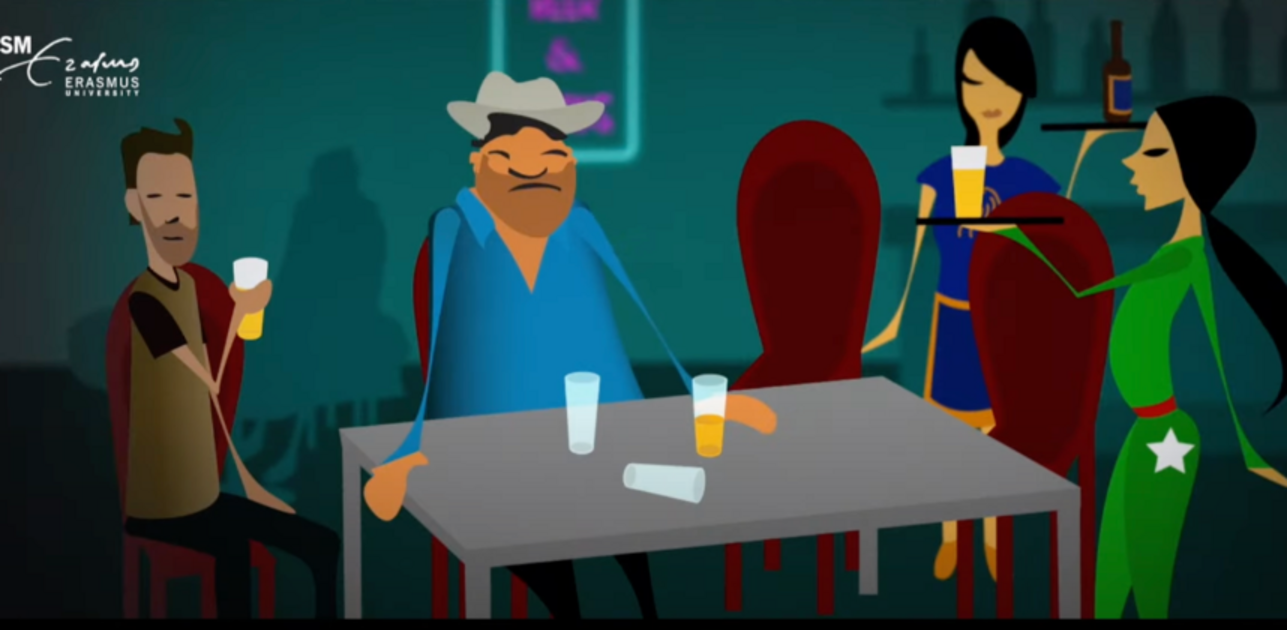

Article: Wednesday, 10 August 2016
Grassroots organisations and NGOs have a long history of pressuring multinational corporations into more responsible behaviour. But sometimes the companies that take the lead in cleaning up their act find themselves targeted by even more social activism, demanding more change. That is what Katinka C. van Cranenburgh of Rotterdam School of Management, Erasmus University (RSM) discovered in her case study on Heineken’s efforts to improve conditions for ‘beer promoters’ in Cambodia.
Social activism, especially when played out in the media, is a powerful method to push corporations towards better working conditions or a better care for the environment, says researcher Katinka van Cranenburgh. But dealing with social activists in small flexible organisations that can change strategies on short notice, does not always come intuitively for multinational corporations that operate with long-term plans for social responsibility.
Van Cranenburgh – who is a former Heineken executive – wanted to find out how managers of the brewer reacted to social pressure from a local NGO that tried to improve working conditions for so-called ‘beer promoters’ in Cambodia.
At the time of her study, most Cambodian bars did not have bartenders, but used beer promoters to sell beer to their mostly male clients, says van Cranenburgh. The female beer promoters, who were employed by local subsidiaries of global beer brands, typically welcome the guest and try to sell them beer of one particular brand. As such they were part of Heineken’s marketing strategy in the country.
Around the year 2000 a few local NGOs drew attention to the spread of HIV in Cambodia, also among what they called ‘indirect sex-workers’ such as beer promoters. One NGO in particular, Sirchesi, added in the media that beer promoters were also exposed to pressure by male clients to sit down and drink alcohol in exchange for tips. Most beer promoters found this hard to resist because of the highly competitive working environment. The NGO also stated that beer promoters were being underpaid by the major international beer companies.
In the narrative case study, Van Cranenburgh analysed every managerial step the company took between 2000 and 2008 during two cycles of activist pressure; from picking up the signals, to the development of new policies to address the issues and implementing them in the real world. At that time, Van Cranenburgh was the responsible project leader, which allowed her to use informal sources as well as formal company policy materials.
When Heineken learned about the pressure from the organisation, it first asked its local partners that employed the beer promoters to respond. They first stated that the working environment for beer promoters was not perceived as ‘unusual or problematic’ in Cambodia. But Heineken global headquarters still felt the need to respond, the researcher says, even though it did not directly hire the beer promoters.
In her study, Van Cranenburgh also describes how several departments within the company struggled, but finally managed, to co-operate and respond to the accountability pressure that was mostly outside their sphere of influence. In the end, Heineken launched a programme aimed at creating safer workplaces by training and informing the beer promoters about dealing with harassment and other risks on the job. The company also had female supervisors installed and provided them with health insurances.
Heineken’s efforts improved the job safety for the brand’s beer promoters significantly, the researcher found. But the 4,000 women that promoted other beer brands did not see any improvement. The activist NGO took notice and stepped up its demands it made to Heineken, in spite of all the achievements by the company. It now wanted to see the beer promoters’ salaries doubled. It also demanded that Heineken would provide free HIV/AIDS treatment to its workers, although those treatments were already free in Cambodia, says Van Cranenburgh.
In response to the increased pressure by the NGO, Heineken then decided to form an alliance with other breweries that used beer promoters in Cambodia, hoping to reduce job risks for beer promoters across the entire industry. Only two other breweries joined: Carlsberg and Diageo.
Van Cranenburgh’s reconstruction shows that other breweries said they were committed to the cause, but were afraid that joining the alliance would raise their public profile, which in turn would make them the focal point of NGO action. Her study also shows that Heineken’s earlier work to improve conditions for HIV/AIDS patients in Africa had also made the company more visible – and vulnerable – to media exposure generated by NGOs. The standards they could be held accountable to were simply higher, because of their earlier successful policies, she found.
After documenting this case, the researcher concludes that Heineken and the NGO never managed to converge on finding solutions. Heineken’s managerial responses on the one hand were motivated by their global policies and corporate values and identity. This made the company willing to improve worker conditions, but complying with all the activists’ demands would have made little sense in their eyes. Heineken said the wages for beer promoters were competitive, and HIV treatments were already widely and freely available in the country.
This case also shows that activist organisations can become ‘entrenched’ in their own activism, says Van Cranenburgh. Their identities become shaped by opposition to corporate policies. As such they have a stake in perpetuating the issue at hand, rather than ending it, she says. Their ad-hoc approach and sometimes quickly shifting demands can complicate a company’s efforts to build good relations with those organisations.
In her study, Van Cranenburgh proposes businesses to shift from using the traditional stakeholder model to a new model of corporate responsibility that puts sustainable development at the heart of managerial decision making. In this model the company is just one of the stakeholders that contributes to societal development, together with others such as employees, shareholders, activists, unions, suppliers and academia. This way of thinking recognises that long-term company survival can no longer be guaranteed by just the company itself. Companies need all those other stakeholders to work towards societal development, and this is what should drive and connect all parties involved, she concludes.
Community Wisdom Partners

van Cranenburgh, K.C. (2016, June 23). Money or Ethics (No. EPS-2016-385). ERIM Ph.D. Series Research in Management. Erasmus University Rotterdam. Retrieved from hdl.handle.net/1765/93104


Science Communication and Media Officer

Corporate Communications & PR Manager
Rotterdam School of Management, Erasmus University (RSM) is one of Europe’s top-ranked business schools. RSM provides ground-breaking research and education furthering excellence in all aspects of management and is based in the international port city of Rotterdam – a vital nexus of business, logistics and trade. RSM’s primary focus is on developing business leaders with international careers who can become a force for positive change by carrying their innovative mindset into a sustainable future. Our first-class range of bachelor, master, MBA, PhD and executive programmes encourage them to become to become critical, creative, caring and collaborative thinkers and doers.
